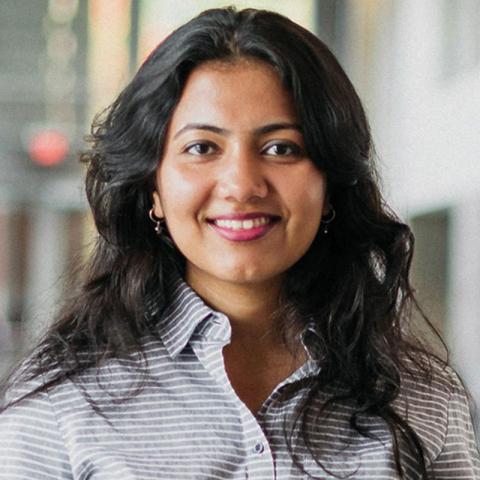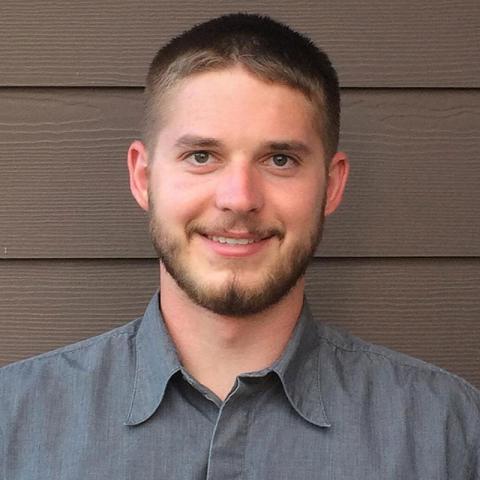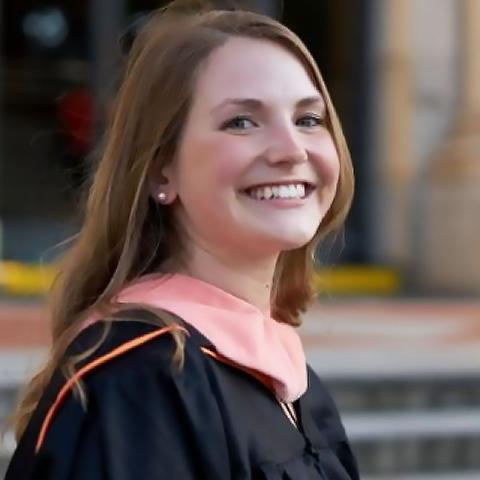Design your unique pathway to a health care career at Oregon State
OSU pre-medicine and allied health professions programs provide extensive resources to support students through all aspects of their preparation and application, and this is reflected in the high success rate of our students who are admitted into professional programs and medical school.
Prepare for medical school
A major that you are passionate about can get you to medical school
Recent data released by the Association of American Medical Colleges show that medical school candidates come from diverse academic backgrounds and a wide variety of majors. Medical schools take a holistic view of candidates, considering their achievements, motivation, leadership, service, life experiences and other factors.
Students can apply to medical school with any major, as long as they also complete required coursework in the sciences and mathematics. In 2019, the most common undergraduate majors for candidates accepted to medical school were:
- Biological sciences
- Physical sciences
- Social sciences
- Humanities
- Specialized health sciences
- Mathematics and Statistics
Pre-med students at OSU have the opportunity to combine a major they are passionate about with specialized premedical training and resources that will enable them to succeed in the MCAT. Learn how you can begin preparing for medical school from day one at OSU.
Prepare for allied health professions
Allied health professionals are considered independent practitioners. These professionals provide therapeutic treatment and diagnostic procedures, and work in conjunction with physicians. For most health professions, your chosen major isn’t as important as getting the pre-requisite courses and experiences in the field.
The most common allied health careers for students in the College of Health are athletic training, physical and occupational therapy, nursing and physician assistant. The college also prepares students interested in careers in health policy and health administration. For more detailed information, visit the College of Health pre-health professions page.
Our students are highly regarded and well-prepared
Generally, 67% of our pre-med students are admitted to medical schools all across the United States, compared to about 40% nationally. Our students have been admitted to competitive medical programs at Harvard, Yale, OHSU, University of Chicago, UCLA, Brown, Western University, Ohio State University and others.
Acceptance rates into allied health professions programs — such as nursing, dietetics, athletic training, physical or occupational therapy and more — also are at or above average.
Highlights of the pre-med program at OSU
- In-depth and comprehensive prerequisites and tailored upper-level science courses provide students with a solid foundation for the MCAT.
- Students learn an integrated approach to health and humanities in the multidisciplinary Medical Humanities Certificate program.
- Mock Multiple Mini Interviews (MMIs) are a collaborative effort of the colleges of Public Health & Human Sciences, Science, Engineering, and Liberal Arts. These interviews are conducted by numerous medical schools, and OSU’s Mock MMI event brings in health professionals, admissions representatives and campus and community experts to help applicants prepare for this unique structure of interviews.
- The Pre-medical Orientation Seminar helps ensure students are prepared for the medical school application process.
- The medical Preceptorship Program immerses eligible students in a clinical environment with a physician mentor to give them a first-hand look at the profession.
- A pre-med listserv provides information about upcoming events, workshops and more.
- The pre-med society is a chapter of the AMSA Pre-Medical Society. There’s also an OSU pre-med Facebook page.
- The College of Health offers a pre-med seminar (KIN 343) for all COH students to prepare for the process of applying to medical school. In addition, it offers a pre-med workshop every winter.
Common pre-med majors at OSU
- College of Science – Biology, Biochemistry & Molecular Biology, BioHealth Sciences, Chemistry, and Microbiology
- College of Health – Kinesiology (PTAH option), Nutrition (Nutrition Health Science option), Public Health, Human Development and Family Sciences
- College of Engineering – Bioengineering, Chemical Engineering, Radiation Health Physics
- College of Agricultural Science – Bioresource Research
- College of Liberal Arts – Philosophy, Psychology, Spanish
Studying pre-dental at OSU
OSU offers the greatest variety of majors of any university in the state. Our pre-dental students choose majors in Science (Biology, Biochemistry/Biophysics, Biochemistry and Molecular Biology, BioHealth Sciences, Chemistry, Microbiology), Health (Kinesiology, Nutrition, Public Health), Engineering (Bioengineering, Chemical Engineering, Radiation Health Physics), Agricultural Sciences (BioResource Research), and Liberal Arts (History, Music, Psychology, Spanish, etc.).
Learn more about pre-dental at OSU.
Studying pre-pharmacy at OSU
Oregon State undergraduates who are interested in becoming pharmacists can choose any major, but should complete all of the prerequisite courses for the Pharm.D. program. Most pre-pharmacy undergraduates choose majors in the College of Science, and receive academic advising and other support services from that college. Many students choose to major in BioHealth Sciences with a Pre-Pharmacy option. Completing the prerequisite courses prepares students to apply to the College of Pharmacy Pharm.D. program.
Learn more about pre-pharmacy at OSU.

Swechya Banskota
“Being mentored by all the great doctors at the Cardiovascular Center has taught me that I, too, want to be a doctor who does similar things. The big takeaway for me is that as a physician you can do so many things that involve outreach and service to the community,”

Jacob Maynes
“A big part of medical school is experience, and because I’ve been working so long, my experience is basically on par with everyone else – even though they’re older than me.”

Joanna Kubes
“Tentatively, I will be transitioning from working in health insurance to providing medical care to patients, and even potentially developing health laws and policies within a system, state or federal level in the future.”
More Student Success Stories
- Medical school awaits this biology major
- Physician alum advises Navy’s COVID-19 response oversees
- Medicine and public health come together in Ecuador internship
- Taking science across borders to help Puerto Rico in aftermath of Hurricane Maria
- Back to school: More pre-med students attracted to public health degrees
- Nursing school is next step for College of Health high-achiever
- Continuing a family tradition: Mahtab Brar pursues a future in medicine